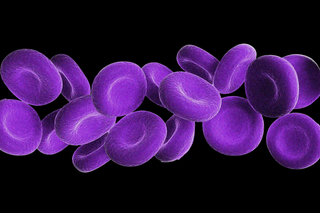
Researchers Identify a New, Rare Blood Type
A new blood system, Er, was found to influence a person’s blood type along with ABO and rhesus proteins.

The unsolved deaths of a few newborn babies has baffled science. Nearly thirty years later, scientists may have understood what happened: a new, previously unaccounted for blood type may have been at play.
Scientists and medical researchers led by the UK’s National Health Service Blood and Transplant (NHSBT) division recently discovered a new blood group system in humans. The findings of the research, conducted in collaboration with Bristol’s School of Biochemistry and some other international collaborators, were published last month in the journal Blood.
Presently, the International Society of Blood Transfusion (ISBT) identifies 43 different classifications of blood group systems in humans: “(t)he term ’blood group’ usually refers to an individual’s combination of Red Blood Cell (RBC) surface antigens. Antigens are specific sites on different proteins… that form parts of the RBC membrane which the immune system can interact with.” These proteins have different functions, and blood group systems are classified on the basis of these functions. Of the 43, the most commonly known blood group systems are the ABO system and the Rh system. Now, there’s a new system to account for: Er.
Identifying these blood group systems based on their antigens is crucial to ensure safe blood donations and transfusions. This is explained as a recipient’s immune system may react violently to the donor’s blood if it carries antigens different from that found in their own blood, resulting even in death. But during the 1980s and 1990s, however, this happened where it shouldn’t have. Two fetuses died as their blood was incompatible with their respective mothers’, triggering an immune response by their mothers’ bodies against their own unborn babies, eventually leading to their deaths. Although the doctors at that point realized that the mothers were carrying an ultra-rare blood type, they couldn’t make much more headway.
Between 1982 and 2022, scientists at NHSBT identified a total of 13 cases where blood samples didn’t fall into any classification of the existing blood group systems. This prompted them to study the characteristics of these samples via DNA sequencing. The scientists observed that in all 13 samples, there was a specific change to the gene coding of a protein called Piezo1, leading to an alternative protein found on the surface of blood cells in these individuals.
By using gene editing software to first remove and then add Piezo1 back to the gene coding of the samples, the researchers arrived at the conclusion that the altered Piezo1 protein in these blood samples distinguished them from other blood group systems. Based on the different alterations of the Piezo1 protein, the researchers identified five different groups in the system: Era, Erb, and Er3, which scientists already knew about; and Er4 and Er5 — two completely new variants.
Related on The Swaddle:
How Routine Blood Tests May Help Indicate Mental Health Disorders
Commenting on the findings of the study at a press release, Ash Toye, one of the researchers, said, “this work demonstrates that even after all the research conducted to date, the simple red blood cell can still surprise us. Piezo proteins are… present at only a few hundred copies in the membrane of each cell. This study really highlights the potential antigenicity of even very lowly expressed proteins and their relevance for transfusion medicine.”
Nicole Thornton, another researcher in the current study, highlighted the tragic incidents that eventually led to the discovery of this blood system, saying, “This discovery solves the 30-year plus mystery of the genetic background of this blood group system but the most important consideration for us, in investigating these cases, was to be able to provide answers to two mothers who tragically lost their babies.”
The discovery of this new blood type is significant in understanding accurately the complications arising due to blood incompatibility from this specific blood system. The results of the study are likely to be ratified at a meeting of the ISBT later this year, Wired reported. But the implications are stark. Doctors can now, on knowing these specific complications, devise accurate treatments for such scenarios. They can also start creating a repository of this sample of blood for use in emergencies. As Daniela Hermelin, a pathologist at St. Louis University — who was not a part of the current study — told Wired, “Discovering a new blood group system is like discovering a new planet. It enlarges the landscape of our reality.”
Amlan Sarkar is a staff writer at TheSwaddle. He writes about the intersection between pop culture and politics. You can reach him on Instagram @amlansarkr.
Related


How ‘Dark Data’ Is Affecting the Environment
